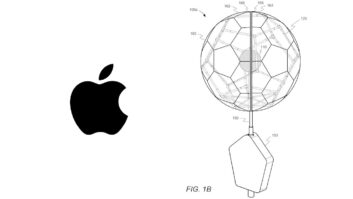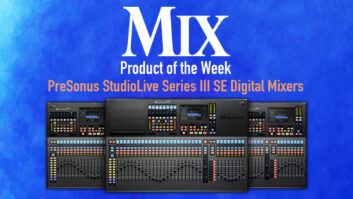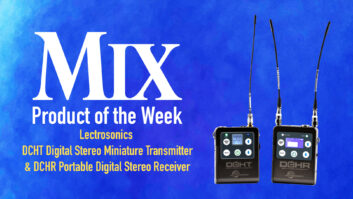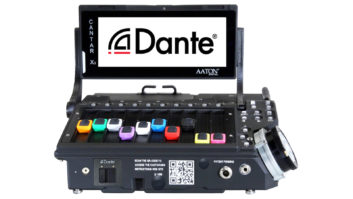Cupertino, CA (August 12, 2019)—Music and tech websites were abuzz on August 7 with the news that Apple had announced the launch of Apple Digital Masters, using its catalog of high-resolution Music for iTunes audio files to deliver what some reported as “lossless quality” music.
Billboard was the first news site to report the Apple announcement, which was quickly re-reported by other organizations, some of them speculating that the new initiative offered high-resolution streaming.
Apple’s media advisory states that Apple Music “has been slowly rolling out Apple Digital Masters,” and adds, “By encoding from high-resolution masters, Apple music engineers are able to capture all of the detail of a recording in a size that is convenient for streaming and downloading. Using 24-bit files means less noise and higher encoding efficiency.”
Apple’s iTunes webpage now refers only to the new branding and includes a link to a downloadable PDF detailing its new mastering guidelines, dated July 2019.
In addition to introducing a new set of guidelines for Apple Digital Masters, the company has made available a variety of tools — automated droplets and command-line utilities — that enable mastering engineers to convert their LPCM files (AIFF or WAV) to 256 kbps AAC format and monitor for clipping. There is no mention of the native high-resolution or lossless files being made available to consumers.
The PDF includes the following note: “Apple Digital Masters replaces Mastered for iTunes as the name of the program to better reflect the fact that these audio advantages are available to our entire music catalog across the Apple ecosystem, whether streamed or downloaded. All Mastered for iTunes releases are now badged as Apple Digital Masters. All of the Mastered for iTunes software tools are still usable for Apple Digital Masters creation.”
Apple launched its Mastered for iTunes (MFiT) guidelines in 2012, which sought to improve the quality of the audio on the platform. The iTunes platform launched in 2003 with its catalog available in Apple’s lossy 128 kbps AAC format. The bit rate was later improved with iTunes Plus, offering files encoded at 256 kbps VBR (variable bit rate). MFiT raised the bar by requiring that mastering engineers encode to 256 kbps AAC directly from uncompressed masters originally recorded at 24 bits and any sample rate from 44.1kHz through 192kHz. Apple Digital Masters are also encoded to 256 kbps AAC format.
At the beginning of June, Apple announced that its online music, movie and other media storefronts were being discontinued, to be replaced by desktop apps — Apple Music, Apple TV and Apple Podcasts — in time for the roll out of the new Mac OS code-named Catalina. The apps are said to more closely align with the way that media is categorized on Apple mobile devices.
Currently, the iTunes app opens on a desktop to a page still labeled Mastered for iTunes that states, “With sparkling state-of-the-art fidelity, Apple Digital Masters let you experience music as the artist and sound engineer intended. Capturing every detail in high resolution, this mastering process ensures a pristine listening experience on your computer. Titles from every genre are added frequently, so check back often for more releases created from Apple Digital Masters.”
Apple’s media advisory notes that approximately 75 percent of the U.S. Top 100 and 71 percent of the global Top 100 are currently available as Apple Digital Masters.
It would appear to have been wishful thinking on the part of some commentators that Apple was making high-resolution files available for streaming and download — for the moment, anyway. But for Apple to remain competitive with the likes of Tidal, Deezer and Qobuz, platforms that all offer top-tier subscription plans streaming lossless high-resolution audio, it’s not a stretch to imagine that the company might implement a similar program in the future.
Apple • www.apple.com







